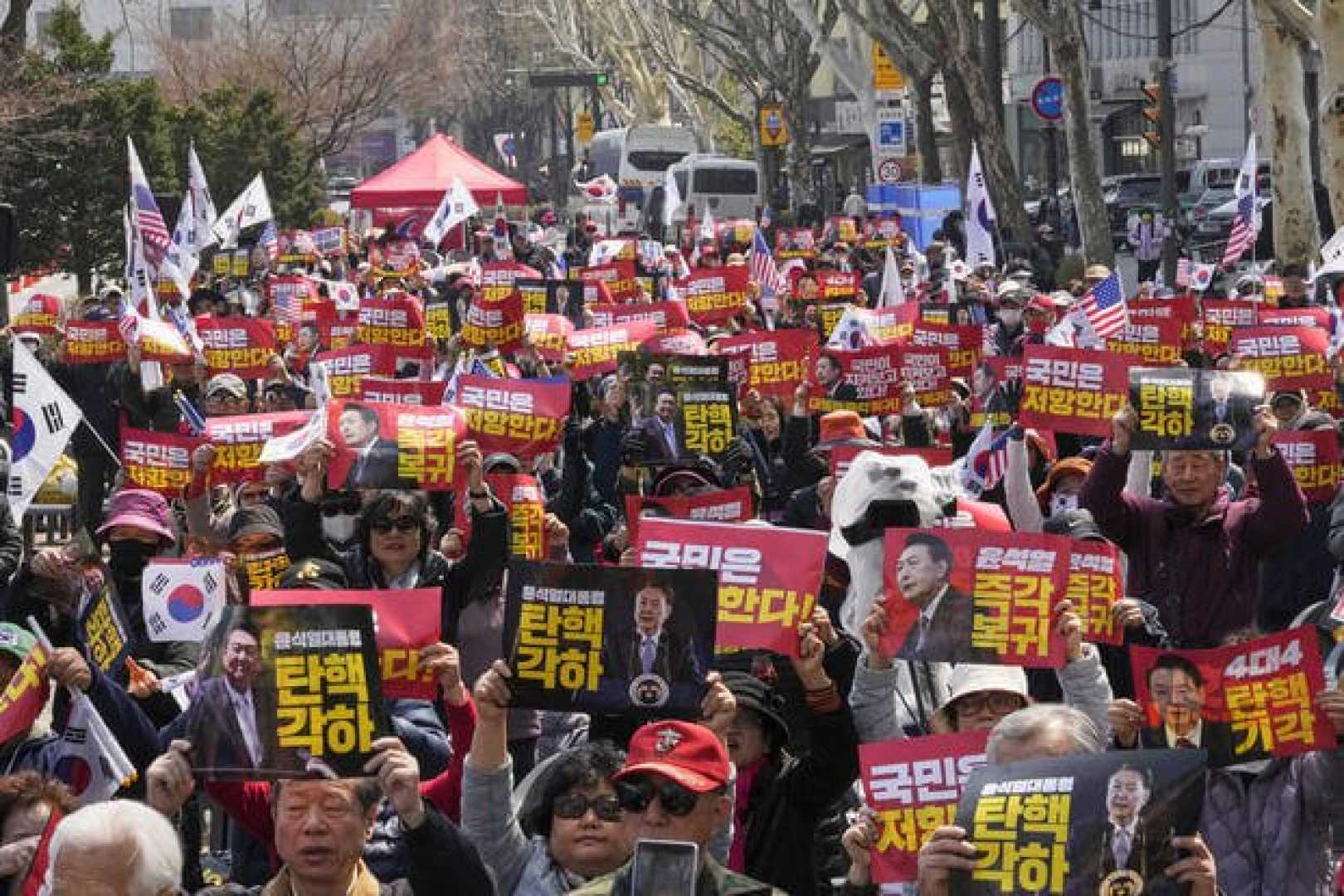News
South Korea’s Court to Decide Yoon Suk Yeol’s Impeachment Fate

SEOUL, South Korea (AP) — South Korea’s Constitutional Court is set to rule Friday on whether to uphold or overturn the impeachment of President Yoon Suk Yeol. The decision follows months of political turmoil after his brief declaration of martial law in December 2024, a move that has deeply divided the nation.
The court announced that its ruling will be delivered at 11 a.m. local time and will be broadcast live. This decision is critical, as it could either restore Yoon to power or require South Korea to hold a presidential election within two months if his impeachment is upheld.
Yoon was impeached by the liberal-controlled National Assembly for what they deemed unconstitutional behavior surrounding the martial law decree. Supporters and opponents of his presidency have staged large rallies throughout the country, anticipating the court’s decision, which will likely influence the nation’s political landscape significantly.
Police are preparing for potential unrest surrounding the ruling and have announced that they will deploy thousands of officers to maintain order. Authorities are concerned about possible violent protests from both sides of the political spectrum as Yoon’s supporters and opponents prepare to rally outside the court.
Jo Seung-lae, spokesperson for the opposition Democratic Party, has urged the court to uphold Yoon’s impeachment, insisting, “the court must show its commitment to upholding the constitutional order.” Conversely, Kwon Youngse, leader of Yoon’s People Power Party, has called for a neutral and fair ruling, emphasizing the need for consideration of national interest.
The allegations against Yoon center around his decision to impose martial law as political protection against opposition forces. He has argued that this measure was necessary to prevent what he called the “wickedness” of the Democratic Party, which he claims is obstructing his administration.
The brief martial law lasted only six hours after lawmakers managed to assemble and vote it down. While the declaration didn’t result in violence, it evoked memories of South Korea’s past military dictatorship. Yoon’s actions reportedly included deploying troops to the National Assembly, a decision that has drawn severe criticism.
In addition to the impeachment proceedings, Yoon faces separate criminal charges related to insurrection. Despite the controversies, recent polls indicate that public support for his impeachment is strong, with 60% of respondents in favor of his removal.
As the public awaits the ruling, experts predict heightened tensions regardless of the outcome. If Yoon is reinstated, it could escalate the current political crisis, while affirming the impeachment could lead to a swift push towards a new election.
This ruling comes at a significant moment for South Korea, whose political stability hangs in the balance, showcasing the deep-seated divisions within society over governance and democracy.












